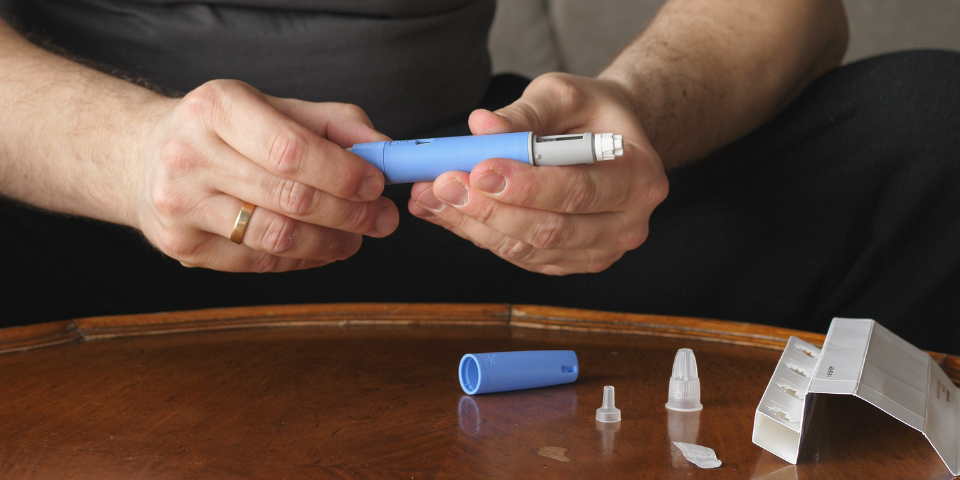Ozempic and other medications like Wegovy and Rybelsus, as well as tirzepatide drugs like Mounjaro and Zepbound, have gained popularity for their weight loss effects. These drugs work by mimicking the GLP-1 hormone, which helps lower blood sugar and signals fullness to the brain. While these medications can be beneficial for treating obesity and other health conditions, there are potential side effects to consider.
One common side effect of incretin mimetic drugs like semaglutide and tirzepatide is muscle loss. Clinical trials have shown that these drugs can lead to a decline in muscle mass, which can have negative effects on physical strength, metabolic rate, and overall health. It's important to be aware of the risks of muscle loss when taking medications like Ozempic.
Does Ozempic Cause Muscle Loss?
Research has shown that people who take incretin mimetic drugs may experience muscle mass loss. While losing weight typically results in some muscle loss, GLP-1 medications like Ozempic can lead to more rapid and significant muscle mass loss compared to other weight loss interventions.
A study published in Endocrinology and Metabolism found that a significant portion of weight loss on incretin mimetics could be attributed to the loss of lean mass, or muscle.
The dangers of muscle wasting
Losing muscle mass can have serious consequences, including an increased risk of chronic disease, a slower metabolism, and reduced bone density. It can also impact everyday tasks, balance, and posture. Preventing muscle loss is essential for maintaining overall health and fitness.
Strategies to Prevent Muscle Loss on Ozempic
When taking incretin mimetic drugs like Ozempic, it's important to prioritize protein intake, incorporate resistance training into your routine, and fuel your workouts appropriately. These strategies can help prevent muscle loss and support overall health and fitness goals.
Optimizing Your Nutrition on GLP-1 Drugs
A registered dietitian can assess your individual energy needs and assist you in managing the challenges of losing weight while also building and maintaining muscle mass, such as when taking medications like Ozempic.
While these medications may reduce your appetite, it is important not to drastically restrict your food intake. The goal is to regain control over your diet and make healthier choices, rather than simply eat less. Focus on consuming nutrient-dense foods, such as lean proteins, fruits, vegetables, and whole grains, to prevent malnutrition and support muscle health.
It is crucial to time your meals strategically to optimize your calorie intake and fuel your body effectively. Prioritize carbohydrate-rich foods before workouts for energy and protein-rich options post-workout to support muscle recovery and growth.
If you are struggling with maintaining a balanced diet while on GLP-1 medications, consider seeking advice from a healthcare provider or registered dietitian. They can provide personalized recommendations to help you navigate any challenges you may encounter.
Supplementing to Help Preserve Muscle on GLP-1 Drugs
While whole foods should always be the foundation of your nutrition plan, supplements can be beneficial in filling nutritional gaps and supporting muscle health, especially if you have difficulty meeting protein requirements due to appetite suppression.
Protein supplements, like shakes and bars, can be useful in ensuring you get enough protein to maintain muscle mass. Additionally, certain micronutrients, such as iron, vitamin D, vitamin B12, and calcium, play a vital role in muscle function and growth. Consult with a healthcare professional to determine if supplementation is necessary for you based on your specific needs.
Lifestyle Changes for Maintaining Muscle Mass on GLP-1 Drugs
In addition to optimizing your nutrition and incorporating supplements as needed, lifestyle factors play a significant role in preserving muscle mass while on GLP-1 drugs.
Emphasize the importance of rest and recovery, as adequate sleep and proper recovery between workouts are essential for muscle maintenance and growth. Avoid overtraining and allow your body time to repair and rebuild muscle tissue.
Manage stress effectively, as chronic stress can negatively impact muscle health and overall wellbeing. Incorporate stress-reduction techniques, such as meditation, and prioritize activities that promote mental and emotional balance.
By combining proper nutrition, supplementation, and lifestyle adjustments, you can support muscle health and optimize your overall well-being while taking GLP-1 medications.
Please rewrite the text for me.
